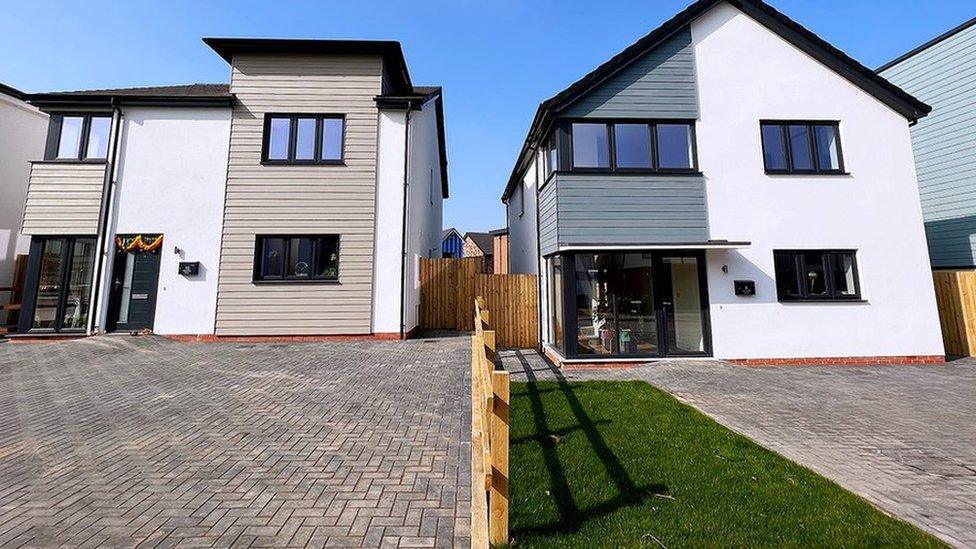Self-build community concerned about tree felling
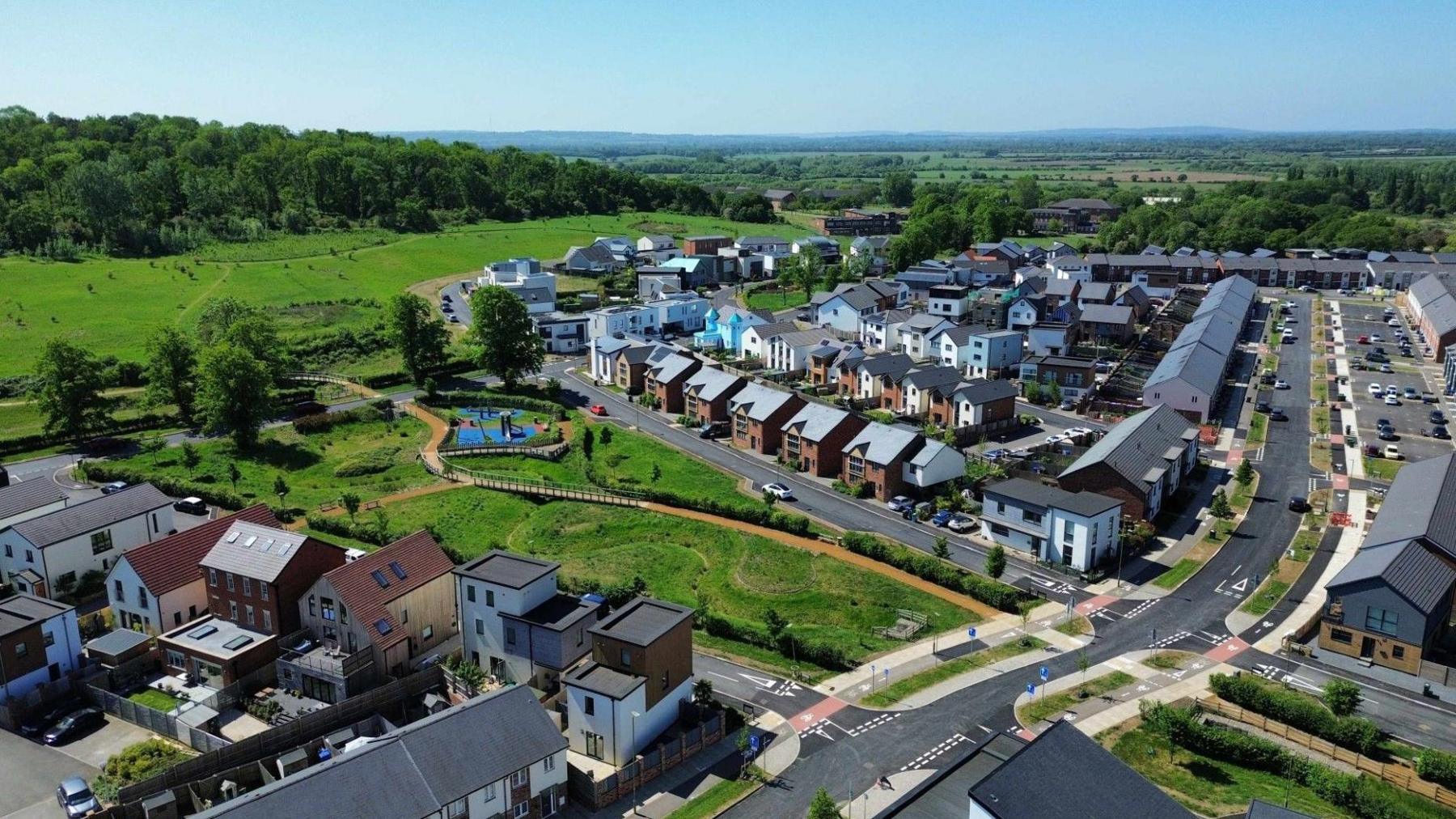
Building started at Graven Hill, near Bicester, in 2016
- Published
The cutting down of trees during the next phase of development at the UK's biggest self-build community has been criticised by residents.
Building first started at Graven Hill, near Bicester, Oxfordshire, in 2016.
Developers Graven Hill Village Development Company (GHVDC) submitted a hybrid planning application in the summer for more than 1,000 new homes, but some residents have formally objected.
However, Adrian Unitt, managing director of GHVDC, said Graven Hill had a "much larger area of open space and natural areas than most developments".
He also said more than half of the the site consisted of green spaces, including woodland.
Construction began at Graven Hill after Cherwell District Council (CDC) bought the former Ministry of Defence site.
The first self-builders featured on Channel 4's Grand Designs: The Street. Its growing community also lives in custom-builds, new builds, affordable housing and apartments.
About 650 homes have now been built, with recent additions to the site including a primary school and a dental practice.
But resident Stephen Aggett said more than half the trees on the site would be cut down if the application as it stands was approved, which he called a "huge waste of Graven Hill's heritage".
A 170-year-old protected oak, a veteran ash, and an avenue of weeping willows were "all on the chopping block", he warned.
More stories from Oxfordshire
Oxford 'leading the way' on air quality target
- Published27 October
Hosepipe bans across the south to continue
- Published27 October
Village shocked by death of girl, MP says
- Published26 October
Mr Aggett said: "Nobody is objecting to these new homes. But we don't need to destroy the landscape to build them when simple layout tweaks can save these trees.
"This is a massive wasted opportunity - a little care and attention can incorporate Graven Hill's natural heritage into beautiful parks and neighbourhoods for future generations to enjoy."
Another resident, Bryony Core, said GHVDC had an "opportunity to show that they can act as stewards of the unique local environment rather than continuing with proposals to fell trees of environmental and historic significance and making the lives of the residents of Graven Hill all the poorer for it".
Critics have suggested that adjusting park boundaries by a few metres could retain the trees without reducing the number of homes.
The BBC understands the outline application is a "worst case scenario", with the possibility of identifying more trees to retain at future reserved matters planning stages, and that about 1,500 will be planted, more than those lost.
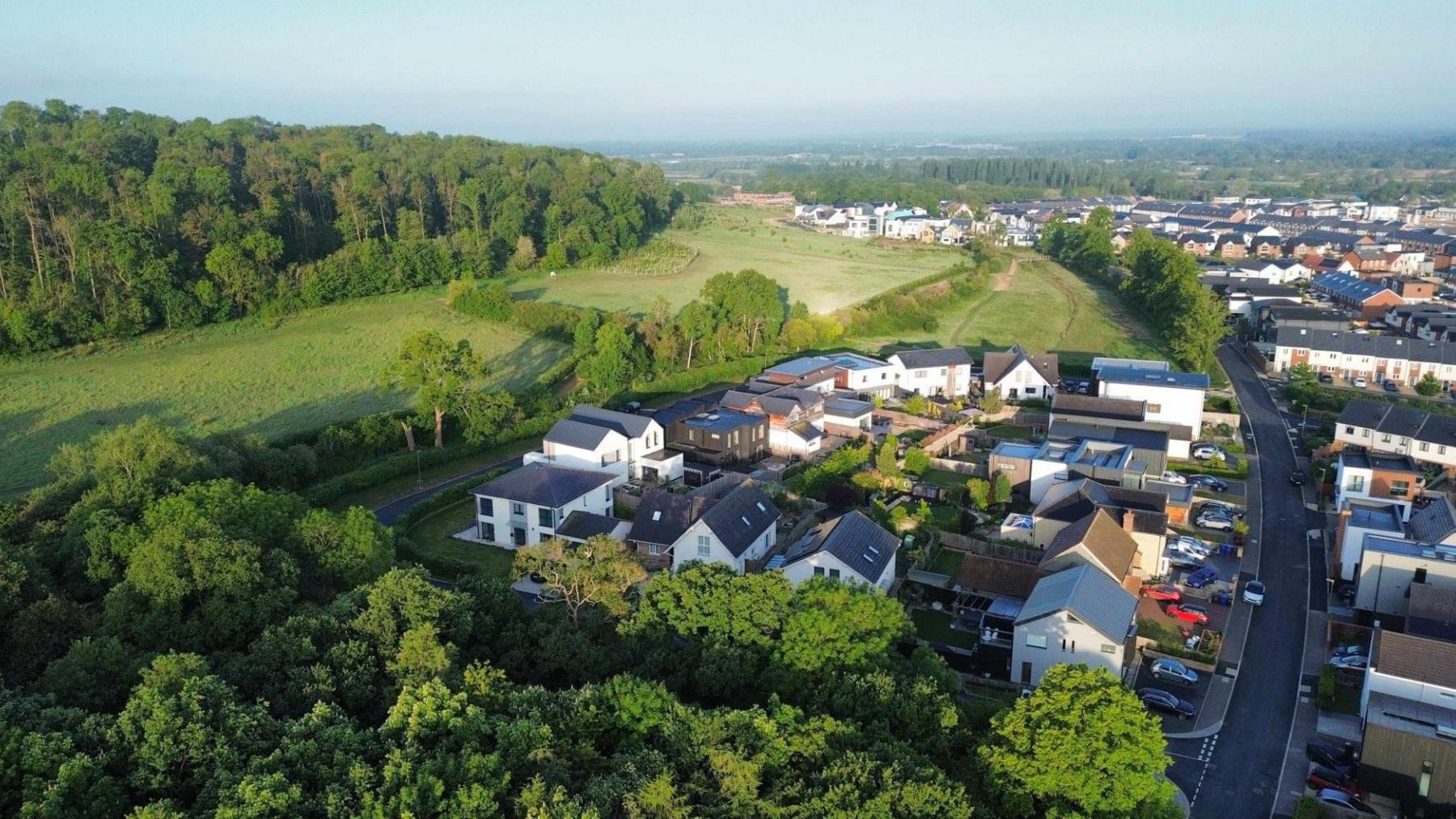
About 650 homes have now been built at Graven Hill
Mr Unitt said: "Graven Hill is a fantastic development... crucially providing a wide choice and creating a community where all are welcome."
He said the latest planning application was an "opportunity to further enhance what has already been achieved".
"We have resurveyed all of the trees on site and healthy veteran trees now form a key part of the design," he explained.
"Trees that were set to be removed under the previous planning permission are now retained, and as well as achieving biodiversity net gain on the site there will be extensive new planting and better management of the woodland."
He said public consultations had provided "valuable opportunities" to discuss the proposals, and led to "positive changes" such as increased play areas.
Get in touch
Do you have a story BBC Oxfordshire should cover?
You can follow BBC Oxfordshire on Facebook, external, X (Twitter), external, or Instagram, external.
- Published6 August

- Published2 May
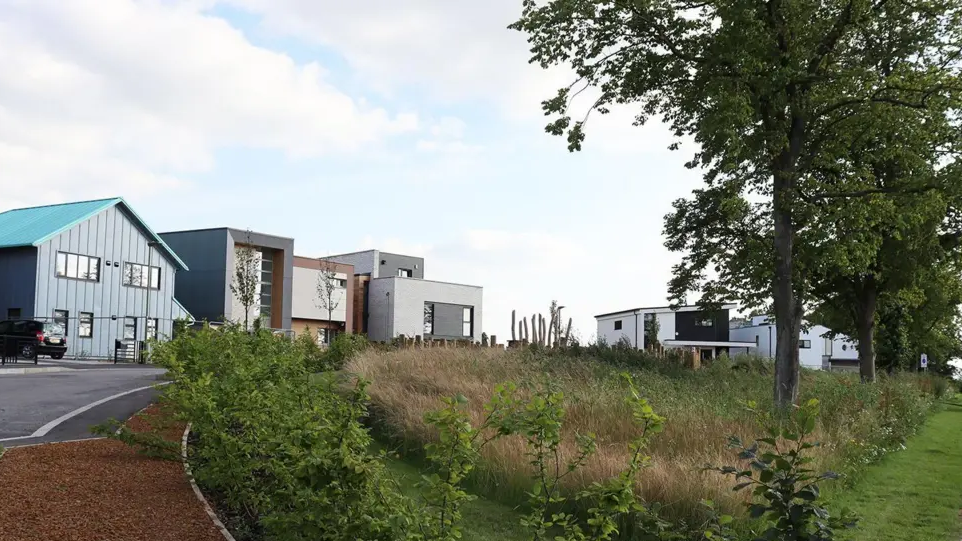
- Published7 August 2024
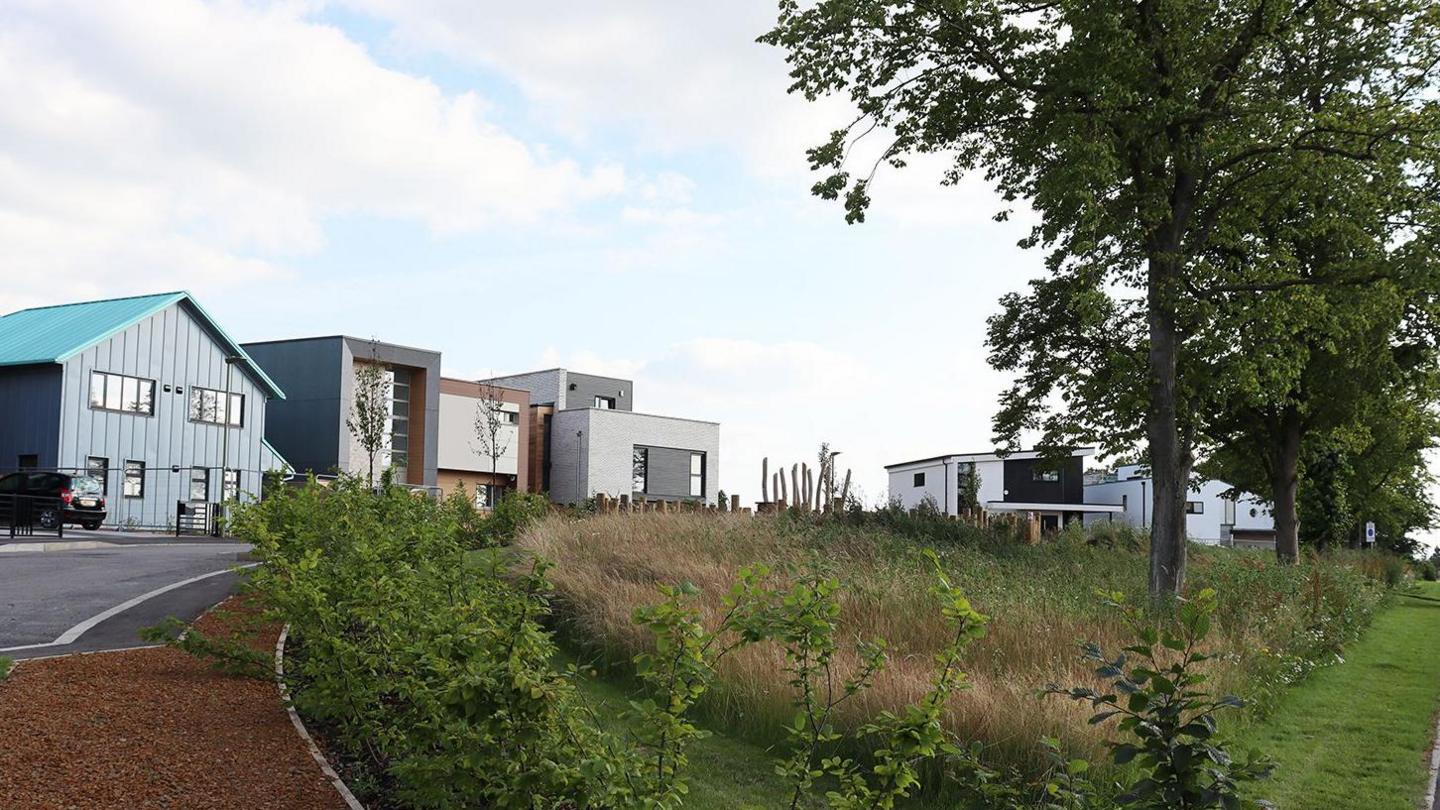
- Published29 March 2024
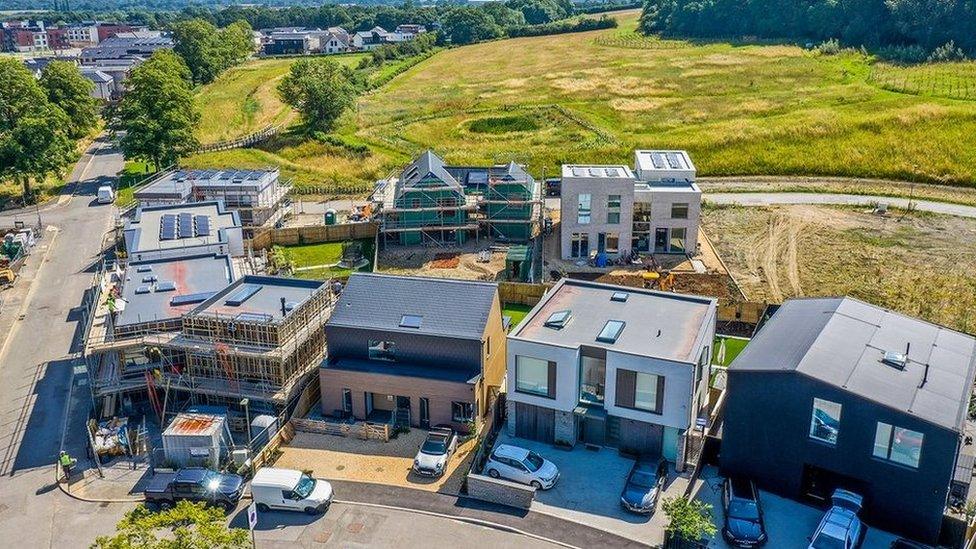
- Published11 September 2023

- Published6 April 2023
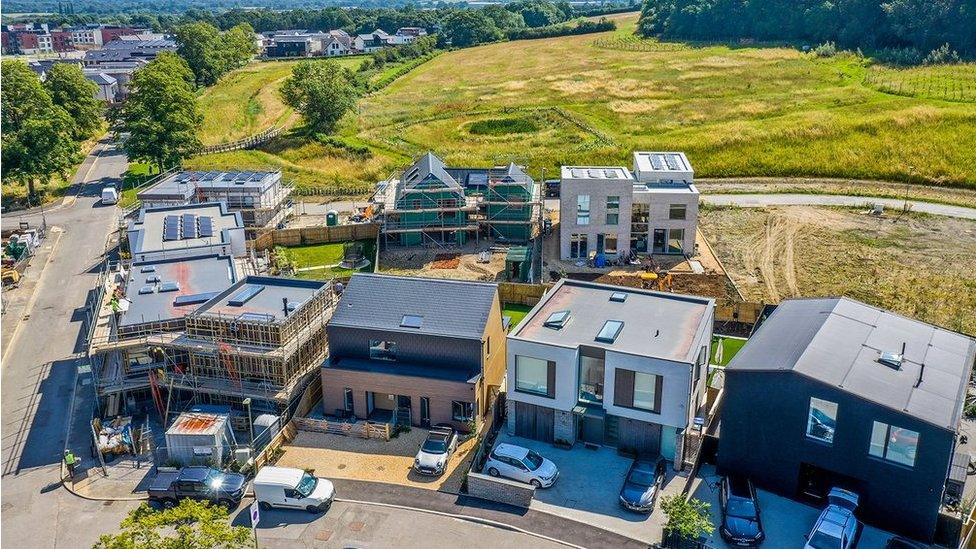
- Published21 January 2023
